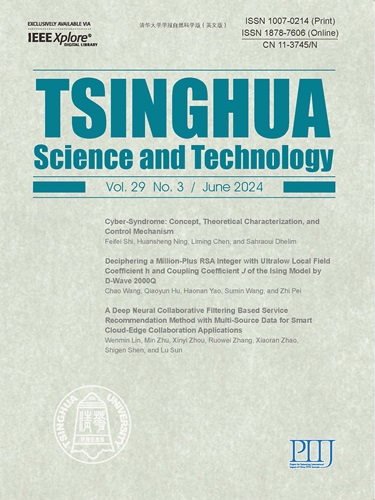A DQN-Based Edge Offloading Method for Smart City Pollution Control
IF 3.5
1区 计算机科学
Q1 Multidisciplinary
引用次数: 0
Abstract
Smart city pollution control is fundamental to urban sustainability, which relies extensively on physical infrastructure such as sensors and cameras for real-time monitoring. Generally, monitoring data needs to be transmitted to centralized servers for pollution control service determination. In order to achieve highly efficient service quality, edge computing is involved in the smart city pollution control system (SCPCS) as it provides computational capabilities near the monitoring devices and low-latency pollution control services. However, considering the diversity of service requests, determination of offloading destination is a crucial challenge for SCPCS. In this paper, A Deep Q-Network (DQN)-based edge offloading method, called N-DEO, is proposed. Initially, N-DEO employs neural hierarchical interpolation for time series forecasting (N-HITS) to forecast pollution control service requests. Afterwards, an epsilon-greedy policy is designed to select actions. Finally, the optimal service offloading strategy is determined by the DQN algorithm. Experimental results demonstrate that N-DEO achieves the higher performance on service latency and system load compared with the current state-of-the-art methods.基于dqn的智慧城市污染控制边缘卸载方法
智能城市污染控制是城市可持续发展的基础,它广泛依赖于传感器和摄像头等物理基础设施进行实时监控。一般情况下,监测数据需要传输到集中的服务器,以确定污染控制服务。为了实现高效的服务质量,智能城市污染控制系统(SCPCS)涉及边缘计算,因为它提供了靠近监控设备的计算能力和低延迟的污染控制服务。然而,考虑到服务请求的多样性,卸载目的地的确定是SCPCS面临的一个关键挑战。本文提出了一种基于深度q网络(Deep Q-Network, DQN)的边缘卸载方法N-DEO。最初,N-DEO采用神经分层插值时间序列预测(N-HITS)来预测污染控制服务请求。然后,设计一个贪心策略来选择动作。最后,利用DQN算法确定最优服务卸载策略。实验结果表明,与现有方法相比,N-DEO在服务延迟和系统负载方面具有更高的性能。
本文章由计算机程序翻译,如有差异,请以英文原文为准。
求助全文
约1分钟内获得全文
求助全文
来源期刊

Tsinghua Science and Technology
COMPUTER SCIENCE, INFORMATION SYSTEMSCOMPU-COMPUTER SCIENCE, SOFTWARE ENGINEERING
CiteScore
10.20
自引率
10.60%
发文量
2340
期刊介绍:
Tsinghua Science and Technology (Tsinghua Sci Technol) started publication in 1996. It is an international academic journal sponsored by Tsinghua University and is published bimonthly. This journal aims at presenting the up-to-date scientific achievements in computer science, electronic engineering, and other IT fields. Contributions all over the world are welcome.
 求助内容:
求助内容: 应助结果提醒方式:
应助结果提醒方式:


